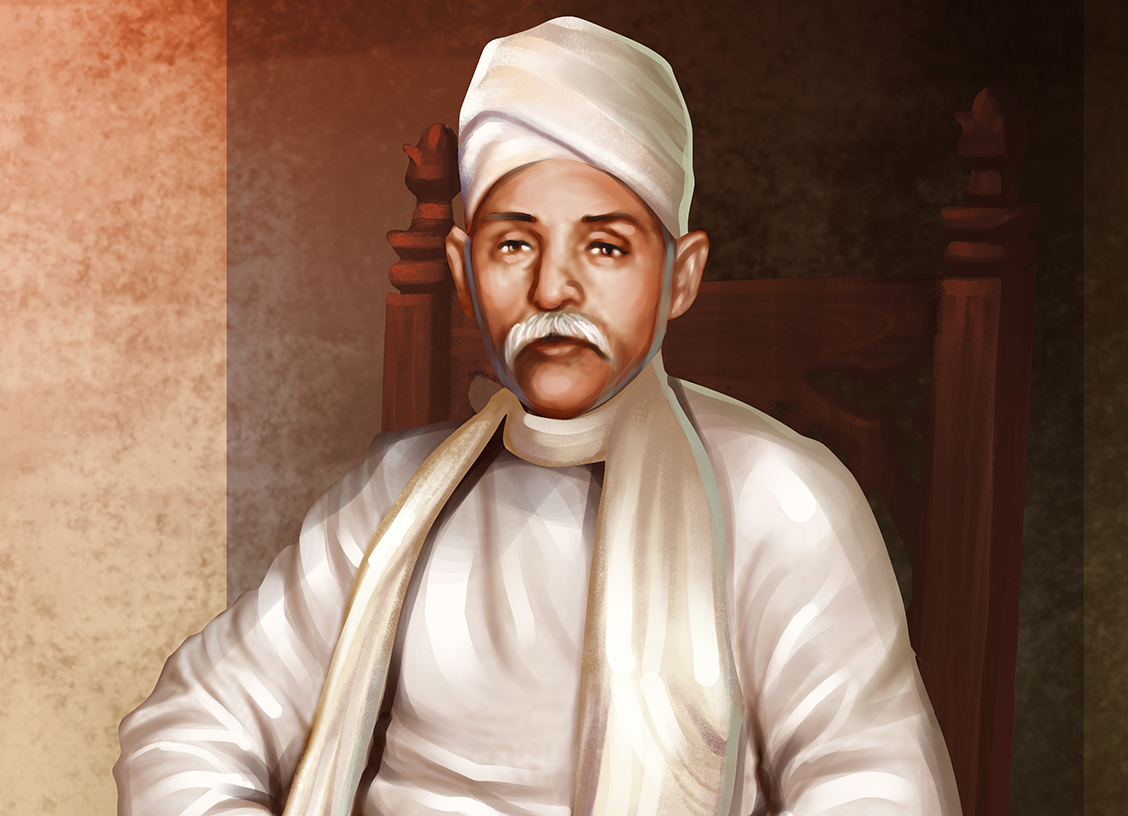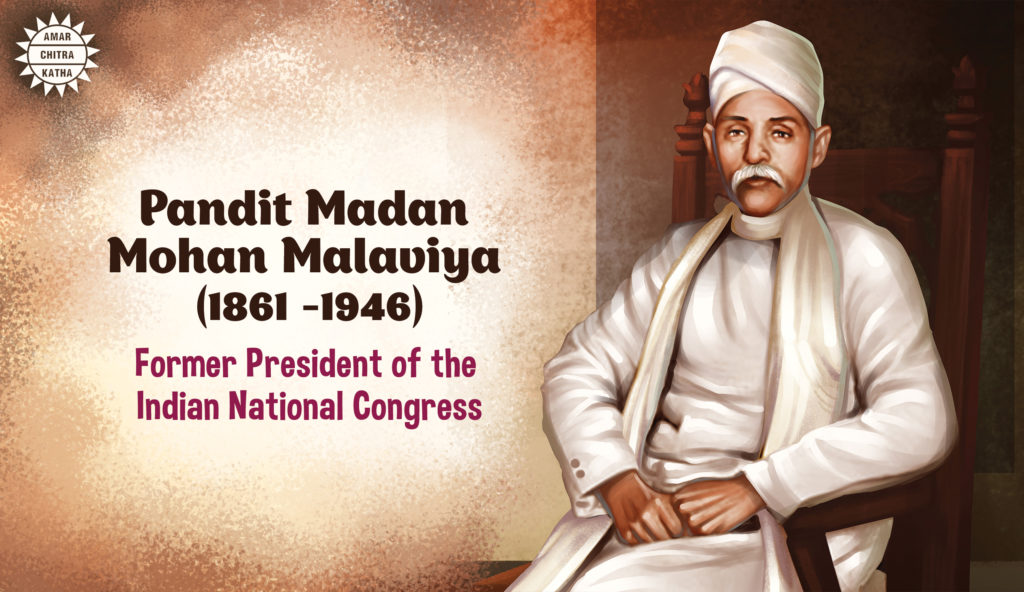Pandit Madan Mohan Malaviya (1861 – 1946)
- July 26, 2024


Pandit Madan Mohan Malaviya (1861 – 1946)
- July 26, 2024
He was the man who popularised the slogan Satyameva Jayate, Truth will Triumph. Patriot, educationist, social reformer and lawyer, Pandit Madan Mohan Malaviya is a towering figure in the story of our independence. His vision and hard work created Benaras Hindu University (BHU). He was a prolific writer and journalist. Pandit Malaviya’s political career saw him thrice elected as President of the Indian National Congress. He also accompanied Mahatma Gandhi to the Round Table Conference in England. He played an important role in the removal of untouchability. Panditji’s great-granddaughter, Brinda Upadhyaya, pays a tribute to the stalwart in an exclusive piece for Amar Chitra Katha.

Pandit Madan Mohan Malaviya shaped India’s struggle for freedom by using the tool of higher education to spread self awareness among the Indian masses.
As a great-granddaughter of Pandit Malaviya, I grew up hearing stories of a courageous struggle against a foreign rule, and several sacrifices that were made by the family. His daughter-in-law, my maternal grandmother, Usha Malaviya was educated and led the womens’ movement against the British rule, spending several days in jail even while nursing her tiny daughter.
To receive more such stories in your Inbox & WhatsApp, Please share your Email and Mobile number.
Pandit Malaviya has often been misunderstood as a Hindu fundamentalist. Nothing is further from the truth as a true educationist could never be parochial or community minded. He was grateful to the Muslims who donated generously towards setting up a Hindu University. Several students from different religions enrolled and received education under him at the BHU.
Pandit Malaviya was a brilliant orator. He interpreted the scriptures lucidly and explained the relevance of the Bhagavad Gita, vedant philosophy and the message of devotion and goodness contained in the Ramayana to the masses who poured in to hear him.
His compassion for animals was exemplary and stands out in his relentless campaign to protect the cow, who, he believed, was an important economic asset to an Indian family. He laboured to ban the slaughter of cows and protested against the killing of calves for leather. My mother recounts several stories where dogs, cats and sparrows were fed regularly and cared for by him.
Pandit Malaviya could not come to terms with Gandhiji’s call to students to boycott British-run schools and colleges. He felt that such boycotts were not in national interest, specially when there was a dearth of educational institutions. Moreover, a large number of teachers employed in these schools were Indians and the schools were financed by Indian money. He suggested that instead of boycotting schools and colleges, the students should take to Swadeshi.
Today, though we lament the loss of values and principles, I see many youngsters respectfully rise to their feet at the sound of the national anthem. I know then that the sacrifices of leaders like Pandit Madan Mohan Malaviya have not been in vain.
Read about more such legendary figures from Indian history on the ACK Comics app!
To receive more such stories in your Inbox & WhatsApp, Please share your Email and Mobile number.

Comic of The Month
The Naval Journey of India Book I
This book is the first of a three-book series that takes a deep and detailed look at India's Naval History and a deep insight into the lives of our men and women in white. But any series on the Indian Navy has to start at the very beginning - exploring India's celebrated maritime history. Join our little hero, Bharat, and his grandfather, Commodore Sagar, as they sail into the deep blue waters of time. Book I of The Naval Journey of India takes a sweeping look at India's maritime endeavours, how the seas impacted us over millennia and how the oceans made us who we are.